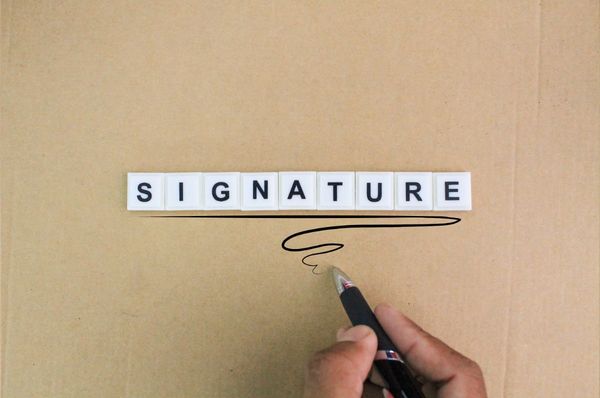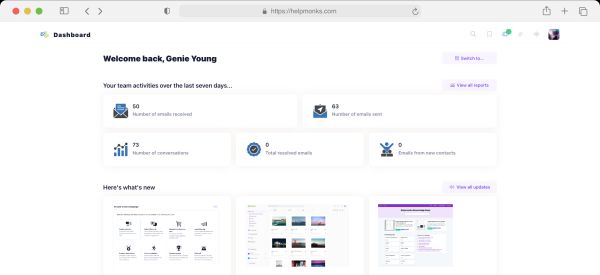
Introducing new pricing for Helpmonks
Discover Helpmonks' new pricing structure, featuring a flexible PRO plan, a FREE plan for smaller teams, and an exciting affiliate program. Experience unparalleled email management solutions today!
Read nowIf one team in every business deserves praise, it's the customer service team. They are the dedicated people who keep customers happy and help boost your reputation. Providing excellent customer service has always been, and always will be, essential for any company's success.
No company can ever afford to let its loyal supporters down, regardless of size or niche. They are helping you reach your dreams, and it's time to give something back.
Just as the business world must adapt to new practices, so too must how you deal with your customers. Even the most robust service can always use a refresher course. Get ready to build a reputation for stellar service and learn these 12 important customer service skills in 2024.
Customer service is an ongoing process of support and assistance that covers the entire preamble to a sale, as well as during and after the purchase. Whether it's a physical or digital product or a service that you're selling, there will be multiple interactions along the way.
Customers may have questions about what they're buying or need extra reassurance that they're getting a good deal. They may be concerned about after-sale expenses like maintenance, repairs, or upgrades.
The customer service team's job is to navigate these queries and give feedback. They have to hear complaints and offer apologies, or listen to problems and offer solutions. These are not always easy tasks but are vital to your brand image and success.
Customer service is important because it offers several benefits, like customer satisfaction and retention, repeat sales, a solid body of referrals, and a good reputation. Many customer service tasks can now be automated, but the more sensitive issues are almost always completed by hard-working employees.
Customers will stay loyal to the company and brand when their concerns are handled correctly. The reverse can also be true - poor customer service can make them look to your competitors, hoping for better service.
It can also bring unexpected benefits, such as better employee retention - because employees are always proud to work for an organization that treats its customers well. However, despite good intentions, customer service cannot excel without the right skills.
Customer service skills are the skills needed to provide better customer service, but there are two categories.
One is not better than the other. Both are necessary if you want to offer a service that meets all your customers' needs. They complement each other well for a more holistic approach to customer service.
Hard skills are job-specific and cover areas of technical knowledge, product/service familiarity, and general business expertise.
These are usually the skills listed as requirements for the job role in a job posting. They are also most commonly listed in applicants' resumes.
Hard skills have traditionally been given more emphasis than soft ones, but that is slowly changing. Business leaders now realize the importance of both skills, particularly in customer service.
Soft skills, while not necessarily job-specific, are crucial when dealing with customers. Indeed, such skills are vital in other departments, too, as they facilitate better communication, increased innovation, more creative collaboration, and teamwork.
Soft skills include interpersonal communication, conflict resolution, and problem-solving. These are especially useful for customer service, where they help with addressing customers' concerns and needs. These softer 'social' skills perfectly complement the harder 'analytical' skills.

No matter how good your customer service skills are, they can always be improved or refined. These 12 customer service skills will enhance customer interactions and strengthen customer relationships in 2024 and beyond.
While empathy is seen as a 'soft' skill, it's a very effective one in customer service. Empathy means understanding the customer's feelings, thoughts, and experiences and seeing things from their perspective.
When customers sense that you have empathy in your handling of their problems, they will immediately feel calmer and more trusting of your willingness to help. Demonstrating empathy can make all the difference when the usual 'quick fixes' to customer problems fail.
Demonstrate empathy while conversing with customers by saying things that show you care right from the start. Examples include, "Thank you for bringing this to our attention". Continue by showing you care enough to help with something like, "We understand how frustrating that is, and will do all we can to help."
Customers want to feel that their opinions and concerns are heard and understood. So give them what they want, by learning how to actively listen. Active listening is engaging with a speaker and indicating your understanding of what they are trying to convey.
Demonstrate active listening by asking open-ended questions. Open-ended questions can't be answered with a "yes" or a "no". These questions will prove that you have been listening and encourage customers to offer more information, which can help you pinpoint the root cause of their difficulties.
You can also summarize their main points and paraphrase them in response. This offers definitive proof that you have heard what they had to say. An example is, "So, you experienced X with the product?" followed by, "What else can you tell me about it? This will help me to better assist you."
Clear communication is vital for promoting understanding and facilitating problem resolution. You can't control how a customer initially communicates their grievances. All you can do is engage in conversation and attempt to extract coherent information from them that will help you to help them.
However, you can control how you communicate, simplifying the entire process. Avoid vague statements and 'thinking out loud' with unfinished sentences. This only serves to confuse a customer who may already be confused or frustrated.
If you have to refer to another department for answers, state this clearly and give the customer an idea of how long that will take. If the time you have quoted them is approximate, be clear about that, too, to avoid further disappointment.
When dealing with customer complaints, astute problem-solving skills will be of great help. Problem-solving involves more than just logical processes; it often requires creativity. Some refer to this as 'thinking outside the box'.
Ask yourself if solving a particular problem can be solved in multiple ways. Discuss possible solutions with the customer. That will demonstrate to customers that you are not in a rush to get complaints or queries off your desk but are dedicated to finding solutions.
As any seasoned customer service representative will tell you, this career path requires great patience. That means you need to take the time to listen to customers and find solutions. Don't become discouraged when you don't find a solution immediately or your first course of action is unsuccessful.
In time, you'll address many types of customer service issues. You'll detect a few common themes and be better able to handle them when similar ones arise. Like almost everything, it gets easier with time and with practice.
No customer service team can address product or service-related complaints or inquiries without adequate knowledge about them. This requires up-to-date and accurate information about product specifications and service offerings.
Ensure that your team always knows what they are talking about by giving them easy access to such information. If a product has been revised, let customer service reps know about it. Similarly, if a product or service is discontinued, ensure your team knows and can explain why.
Adaptability will help you to deal with the common daily challenges of customer service. Things don't always go according to plan. You may be unable to resolve a query immediately or at all and may need to refer to another department for clarification and solutions.
Learn to take such delays and inconveniences in your stride and adapt your schedule accordingly. Also, always allow enough time in the daily schedule for unforeseen delays. This will prevent your team from becoming overwhelmed with a backlog of work.
Sometimes, there seems to be insufficient time to solve every customer's problems. Time management is the solution to getting more done with the time you have.
It entails organizing your tasks and objectives to align with your schedule. This covers everything from initial customer conversations to issue tracking, email inbox management, and feedback calls or emails.
Time management will increase efficiency, enhance productivity, and reduce employee burnout. Take conscious control of time by setting up a manageable schedule, with times allocated to specific tasks. You will address customer service tasks more quickly and effectively when you're judicious with time.

No guide to essential customer service skills can neglect the benefits of conflict resolution skills. Conflict resolution is resolving differences between two or more parties through communication, negotiation, and, if necessary, mediation.
Although customer service issues rarely get to the point where formal conflict resolution is necessary, it's always possible. When conflicts occur, such situations can escalate quickly if not handled correctly. Avoid this by training all customer service representatives in the basic practices of conflict resolution.
Don't stop there; introduce this into all departments. It can make a world of difference in your organization. Understanding how to resolve conflict can improve teamwork and collaboration and help managers handle more sensitive problems with staff.
Multichannel support makes it easier for customers to get the support they need for their inquiries or issues. This can include options like phone calls, emails, and other messaging platforms, for example, on your company's social media pages.
Chatbots are a good example of another support channel that allows customers to resolve their issues more quickly. Troubleshooting and Q&A sections on your website will also help customers resolve their own problems, if minor. This reduces the workload for your team, and the customer is happier, too.
You'll find that the more support channels you have, the better, as customers respond differently. Some people prefer discussing their concerns over the phone, especially seniors who are less tech-savvy and don't like emails. Younger generations may prefer chatbots or other quick and simple methods.
Unfortunately, no matter how skilled you are or how level-headed you are, there will always be customers who are difficult to please. A healthy dose of positivity and humor can go a long way in helping hot-headed customers cool down.
We don't recommend brushing aside any concerns or grievances they may have, nor should you make light of their situation. You must always maintain a respectful and professional approach to customer service.
Rather, we suggest that you remain positive that you can solve their problems and (privately) see the humor in even the most frustrating situations. This will allow you to remain calm and address customers' issues without becoming disillusioned.
Regardless of how much you know, there's always more to learn. This is true for everyone in every department. A path of continuous learning is the key to improving customer service skills, from small businesses to large corporations.
Help your team members refine their skills with extra training and customer service tutorial resources. Offer them free or discounted access to industry-specific courses in customer care.
They will appreciate the support, allowing them to do better work for you and serve customers better. That's a win all around!
Don't forget the value of mentorship programs. These can be useful in customer service just as with any other department. Your senior staff have dealt with all kinds of customer service problems in their time. They can help new customer service representatives find their way when the job pressures become too much.
Customer service is a multifaceted process that includes actively listening to customers and empathizing with them. It requires positivity and a lot of patience, not to mention excellent problem-solving skills.
Customer service is all of this and more. If you incorporate our 12 important customer service skills in 2024, your customer service will earn a reputation for excellence well into the future. But to improve your customer service even more, give your team the support they need with a little help from Helpmonks.
We offer an all-in-one customer engagement, communication, and service platform. It saves customer service reps time and frustration because all their customer interactions are in one place. Create a free account today to enjoy a free 30-day trial.

Discover Helpmonks' new pricing structure, featuring a flexible PRO plan, a FREE plan for smaller teams, and an exciting affiliate program. Experience unparalleled email management solutions today!
Read now
Dynamic email signatures increase brand visibility, build brand identity, and boost conversions. Learn how to create and update dynamic email signatures.
Read now
Looking for an email marketing automation software? This guide shows what to look for. We'll also review the best tools for your online marketing needs.
Read now
Using customer engagement solutions helps you keep your existing customer base and grow. Here are the top 10 customer engagement solutions for your business.
Read now
Empower your team and delight your customers.
